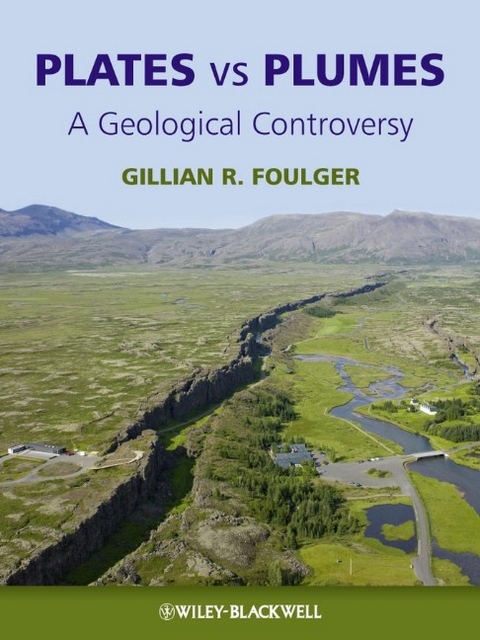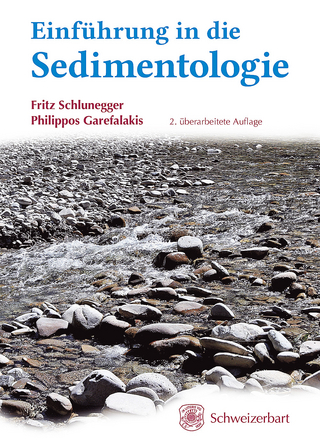
Plates vs Plumes
Wiley-Blackwell (Verlag)
978-1-4051-6148-0 (ISBN)
Earth Science is currently in the midst of the kind of paradigm-challenging debate that occurs only rarely in any field. This volume comprises its first handbook. It reviews the Plate and Plume hypotheses, including a clear statement of the former. Thereafter it follows an observational approach, drawing widely from many volcanic regions in chapters on vertical motions of Earth's crust, magma volumes, time-progressions of volcanism, seismic imaging, mantle temperature and geochemistry.
This text:
Deals with a paradigm shift in Earth Science - some say the most important since plate tectonics
Is analogous to Wegener's The Origin of Continents and Oceans
Is written to be accessible to scientists and students from all specialities
This book is indispensable to Earth scientists from all specialties who are interested in this new subject. It is suitable as a reference work for those teaching relevant classes, and an ideal text for advanced undergraduates and graduate students studying plate tectonics and related topics.
Visit Gillian's own website at http://www.mantleplumes.org
Gillian Foulger is Professor of Geophysics at the University of Durham where she has worked since 1985 on earthquake seismology and plate tectonics. She lived and researched in Iceland for seven years, where she acquired a mistrust of theories that do not fit practical observations without contortion. She manages the world-famous website www.mantleplumes.org and is widely acclaimed for leading the global debate regarding the existence of mantle plumes. For this she was awarded the prestigious Price Medal by the Royal Astronomical Society in 2005.
Preface, ix 1 From plate tectonics to plumes, and back again, 1
1.1 Volcanoes, and exceptional volcanoes, 1
1.2 Early beginnings: Continental drift and its rejection, 1
1.3 Emergence of the Plume hypothesis, 6
1.4 Predictions of the Plume hypothesis, 11
1.5 Lists of plumes, 13
1.6 Testing plume predictions, 21
1.7 A quick tour of Hawaii and Iceland, 23
1.8 Moving on: Holism and alternatives, 26
1.9 The Plate hypothesis, 26
1.10 Predictions of the Plate hypothesis, 35
1.11 Testing the Plate hypothesis, 35
1.12 Revisiting Hawaii and Iceland, 36
1.13 Questions and problems, 37
1.14 Exercises for the student, 37
2 Vertical motions, 38
2.1 Introduction, 38
2.2 Predictions of the Plume hypothesis, 39
2.3 Predictions of the Plate hypothesis, 40
2.4 Comparison of the predictions of the Plume and Plate hypotheses, 43
2.5 Observations, 43
2.6 Plume variants, 73
2.7 Discussion, 74
2.8 Exercises for the student, 76
3 Volcanism, 78
3.1 Introduction, 78
3.2 Predictions of the Plume hypothesis, 84
3.3 Predictions of the Plate hypothesis, 86
3.4 Comparison of the predictions of the Plate and Plume hypotheses, 91
3.5 Observations, 92
3.6 Plume variants, 113
3.7 Discussion, 114
3.8 Exercises for the student, 116
4 Time progressions and relative fi xity of melting anomalies, 118
4.1 Introduction, 118
4.2 Methods, 120
4.3 Predictions of the Plume hypothesis, 122
4.4 Predictions of the Plate hypothesis, 122
4.5 Observations, 123
4.6 Hotspot reference frames, 134
4.7 Plume variants, 1370
4.8 Discussion, 140
4.9 Exercises for the student, 141
5 Seismology, 143
5.1 Introduction, 143
5.2 Seismological techniques, 148
5.3 Predictions of the Plume hypothesis, 153
5.4 Predictions of the Plate hypothesis, 154
5.5 Observations, 155
5.6 Global observations, 179
5.7 Plume variants, 184
5.8 Discussion, 185
5.9 Exercises for the student, 188
6 Temperature and heat, 189
6.1 Introduction, 189
6.2 Methods, 195
6.3 Predictions of the Plume hypothesis, 203
6.4 Predictions of the Plate hypothesis, 205
6.5 Observations, 206
6.6 Variants of the Plume hypothesis, 222
6.7 Discussion, 223
6.8 Exercises for the student, 225
7 Petrology and geochemistry, 227
7.1 Introduction, 227
7.2 Some basics, 230
7.3 Predictions of the Plume hypothesis, 245
7.4 Predictions of the Plate hypothesis, 246
7.5 Proposed deep-mantle- and coremantle-boundary tracers, 246
7.6 A few highlights from melting anomalies, 252
7.7 Plume variants, 261
7.8 Discussion, 263
7.9 Exercises for the student, 265
8 Synthesis, 267
8.1 Introduction, 267
8.2 Mantle convection, 275
8.3 An unfalsifi able hypothesis, 277
8.4 Diversity: a smoking gun, 284
8.5 The need for joined-up science, 284
8.6 The future, 286
8.7 Exercises for the student, 287
References, 288
Index, 319
Colour plate section (starting after page 180)
| Erscheint lt. Verlag | 17.9.2010 |
|---|---|
| Verlagsort | Hoboken |
| Sprache | englisch |
| Maße | 191 x 249 mm |
| Gewicht | 898 g |
| Themenwelt | Naturwissenschaften ► Geowissenschaften ► Geologie |
| ISBN-10 | 1-4051-6148-5 / 1405161485 |
| ISBN-13 | 978-1-4051-6148-0 / 9781405161480 |
| Zustand | Neuware |
| Haben Sie eine Frage zum Produkt? |
aus dem Bereich


